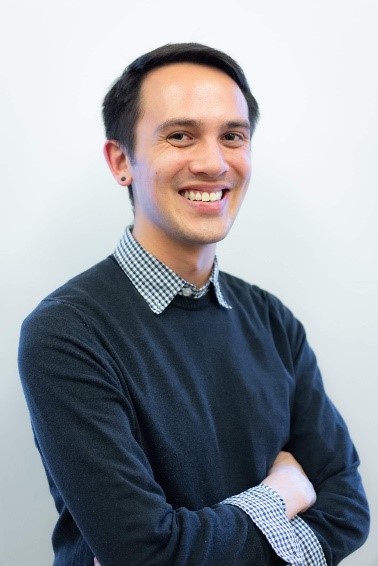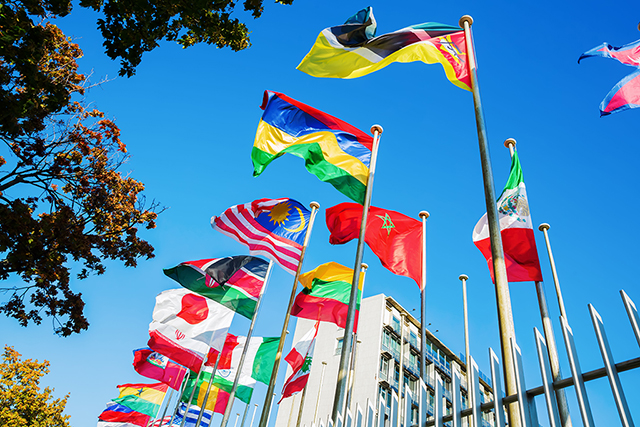Ensuring continuity of education of children with disabilities during emergencies
‘The project pilot serves as a venue for cooperating and developing innovative pedagogies for teaching learners with disabilities. It will equip teachers of learners with disabilities so they can confront the challenges brought on by the ensuing pandemic’.
Sherab Puntshok, Chief, Special Education Section (SPED) of the Ministry of Education, Bhutan
Children with disabilities are among the hardest hit in the ongoing COVID-19 pandemic. Many were already at great risk of exclusion from education and learning loss before the pandemic. Pre-pandemic analysis of available country data by the UNESCO Institute for Statistics reveals that children with disabilities are generally more likely to be out of school than their nondisabled peers. Even if they are in school, children with disabilities are less likely than children without disabilities to complete all levels of education. UNESCO’s collected data also show that children with disabilities lag behind their peers in foundational reading skills.
For nearly 20 years, the UN’s International Day of Persons with Disabilities is celebrated every 3 December, mobilizing awareness and support for the dignity, rights and well-being of persons with disabilities. The 2021 theme, ‘Leadership and participation of persons with disabilities toward an inclusive, accessible and sustainable post–COVID-19 world’,serves as a reminder of the full potential of persons with disabilities, especially children with disabilities in education, to be involved in all aspects of their local, national and global lives and communities.
In response to COVID-19, the UNESCO Asia and Pacific Regional Bureau for Education (UNESCO Bangkok), with financial support provided by the Global Partnership for Education (GPE), has been implementing the education initiative Accelerated Funding to Strengthen Global Partnership for Education’s Response to COVID-19. This initiative aims to ensure that children with disabilities continue to learn during and after major crises, such as the COVID-19 pandemic.
In full recognition and support of teachers as critically important contributors to the post-pandemic recovery process, one component of this project focuses on developing capacities of both mainstream and special education teachers through a multilingual, online, self-paced course, Responding to Educational Needs of Learners with Disabilities in Emergencies: An Online Teacher Training Course (hereafter, DTeEM). Since September 2021, the teacher capacity-building course has been piloted in collaboration with the Ministries of Education and selected universities and teacher training institutions in Bhutan, Cambodia, Lao PDR and Timor-Leste. Some 125 teachers among the 4 countries have, to date, participated in the course, which is currently offered in 6 languages: Bahasa Indonesia, Dzongkha, English, Khmer, Laotian and Tetum.
Developed with the Southeast Asian Ministers of Education Organization (SEAMEO), the DTeEM course showcases a number of innovative pedagogies addressing many of the challenges teachers face in their classrooms: dealing with the psychological and social-emotional impact of the pandemic on all learners and teachers; effective use of assistive technologies for learners with disabilities; preparations and actions to take before, during and after emergencies; transitioning from face-to-face instruction to remote learning, and returning to school. Teachers become equipped with critically important knowledge and skills sets, such as delivering psychological ‘first aid’, and creating low- and no-tech assistive technologies that allow children with disabilities continued participation in education, even during collective emergencies.
Feedback surveys from the pilot testing has indicated that the content has been useful for participant’s current work and instructional materials, activities and assessments, and that it has improved their capacities for teaching learners with disabilities. As Khanthaly Sidavong, lecturer at the Faculty of Education, Souphanouvong University, Lao PDR, stated: ‘I think this course is very useful and valuable for our profession. Although there are many challenges during my class teaching, this course guides me in responding to those problems by making a teaching plan to fit with various students in order to help them as much as we can’.
With such positive responses and the high interest in the course expressed by educators in the Asia-Pacific, there is potential for its expansion and scale-up to include additional languages and modules, and to cover inclusive education, thereby responding to the educational needs of other marginalized and vulnerable learners. This paves the way for going beyond a short-term response to the pandemic and embracing medium- and long-term recovery strategies moving increasingly toward sustainable, resilient and inclusive educational systems for all.
At UNESCO, we are committed to promoting disability-inclusive pedagogies, practices and systems that remove barriers limiting the participation and achievement of all learners, irrespective of their diverse needs, abilities and characteristics, and moving forward in the spirit of eliminating all forms of discrimination in any learning environment.
On this year’s occasion of International Day of Persons with Disabilities, let us be reminded of today’s need for educational programs and policies that fundamentally contribute toward nurturing and guiding the participation of all learners in education in the region, and embracing their future leadership potential in every society.
This story was first published on the Global Partnership for Education (GPE) website blog, 15 December 2021.
By Catherine Wilczek, Program Officer, and Brandon Darr, Consultant, of the Inclusive Quality Education Section, UNESCO Asia and Pacific Regional Bureau of Education (UNESCO Bangkok).
Bios:
 Catherine Wilczek is the assistant program officer at the UNESCO Bangkok office, supporting the regional program on inclusive education, primarily on children with disabilities. She also coordinates and supports the activities of the Disability-Inclusive Education in Asia-Pacific Working Group. She holds a master’s degree in international business from the Queensland University of Technology (QUT), Australia.
Catherine Wilczek is the assistant program officer at the UNESCO Bangkok office, supporting the regional program on inclusive education, primarily on children with disabilities. She also coordinates and supports the activities of the Disability-Inclusive Education in Asia-Pacific Working Group. She holds a master’s degree in international business from the Queensland University of Technology (QUT), Australia.
 Brandon Darr is a consultant at the UNESCO Bangkok office, supporting the initiatives of the Early Childhood Care and Education and Inclusive Education Team, particularly activities under the Asia-Pacific Multilingual Education Working Group. He holds a master’s degree in international educational development from the University of Pennsylvania and a bachelor’s in educational linguistics from the University of Tennessee-Knoxville.
Brandon Darr is a consultant at the UNESCO Bangkok office, supporting the initiatives of the Early Childhood Care and Education and Inclusive Education Team, particularly activities under the Asia-Pacific Multilingual Education Working Group. He holds a master’s degree in international educational development from the University of Pennsylvania and a bachelor’s in educational linguistics from the University of Tennessee-Knoxville.
Main photo credit: Shutterstock/Sony Herdiana






